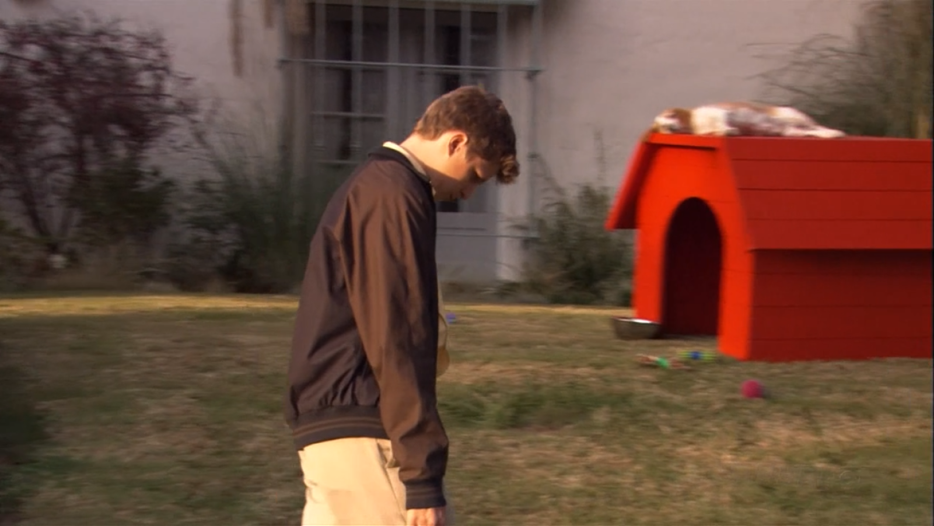Being on the internet—are you with me?—means saying what you think nearly as soon as you think it. That’s not necessarily a bad thing. You can spend three days workshopping a tweet or you can just tweet it; in the end it’s probably the same tweet. But there’s stuff you shouldn’t say, to Twitter or to anyone, because you don’t want to leave a record of ever having thought it; and there’s more benign stuff you shouldn’t say because it will nonetheless shame the you of two years from now, or the you of two weeks from now. That you is a different you altogether, and she needs her autonomy. She needs to be able to hate the you of right now.
Living and working alone, I sometimes think of “me” as a person in my charge. Sometimes I love me, but often I wish there were a way to kill her without actually having to die. Her head is rife with terrible and useless things that I have to wade through just to get to an idea—half the time just thinking feels like meeting the boss in a video game—and she’s a constant source of shame, prone to whining about her good fortune and sulking at the slightest inconvenience. I set rules for her, but she ignores them for months or years before life dings her in the nose and she remembers that I’m almost always right, or at least righter than she is, because if she had her way we’d be eating pizza for breakfast and masturbating on public transit. I try to move forward, but me always lags.
What I’m saying is that I hate me. I can only speak for myself, but I (me? I’m confused) am a shitty person in lots of ways, and all I can do is tug at myself as I would a sluggish dog (maybe I’d hate me less if I had a dog) and try to be better and hope that, in a couple of years, I’ll be able to look back and shudder. Years, weeks, whatever. Sometimes I finish a book, read the margin notes, and wish I could break in two just so I could bitchslap my own dippy face.
Hating yourself is healthy, I think. You’re great, but you could be a lot better. Being online, however, makes it difficult to hate yourself properly. As countless bitter weenies have noted, being online means leaving a forever record of your shitty, ignorant notions. Mere socializing involves verbalizing thoughts that don’t yet deserve to be statements, and that’s natural, but socializing indelibly and in public means blurring the line between what occurs to you and what you actually think. Maintaining that line is a tough process that is much harder to do in front of an audience of any kind, and not maintaining it means you’re nuts.
Verbalizing your shitty, underdeveloped thoughts leaves you vulnerable, but the effect is more insidious than that, because when you verbalize these thoughts to an audience, you become them: people get ideas about you, and you get ideas about their ideas about you, and that feedback loop shapes your character because sorry, you don’t get to just be you. The feedback loop exists IRL, of course, but it happens faster on the internet and you can—and most likely will—go back and replay it. And then you’re stuck. An online persona, and we all have ‘em inasmuch as we are online, is unified and specific, a pattern of discrete utterances. But people do not work this way. Online we are particles, but really we’re waves.
Of course, one of the biggest differences between a thoughtless remark and an equally thoughtless utterance that will live forever in a neverending story is that people have the capacity and the right to call you on the latter, now and always. People are often demented, but they’re not always wrong. You ought to stand up for yourself, but yourself is the person who wrote the thing, not the person who, having wrote it, kept on considering the matter and arrived at a different conclusion. No mater how strong your conviction, no matter how exhaustive your research, it’s hard to defend someone you’ve repudiated, and being thoughtful means repudiating yourself constantly. (Being thoughtful does not mean you’re not shitty right now.)
Don’t get me wrong. I am pro-internet. But I’m ambivalent. I’m ambivalent about most things, because being right about one thing usually involves being wrong about a host of others, and experience has taught me that at any given point in my life, I’ve been barely aware of all the things I’m fucking up. Because I grew up online, I’ve come the long way to cherishing the time and space to reflect on what’s wrong with me, as well as the journal where I can write things I’d never tell the internet. I have a hard time keeping a journal without imagining what someone would think if they ever saw it—but at least that someone is me, a few weeks or months or years from now, and I’m always writing to impress her, even though I’ll only ever disappoint.
Minuatiae runs every Thursday.






